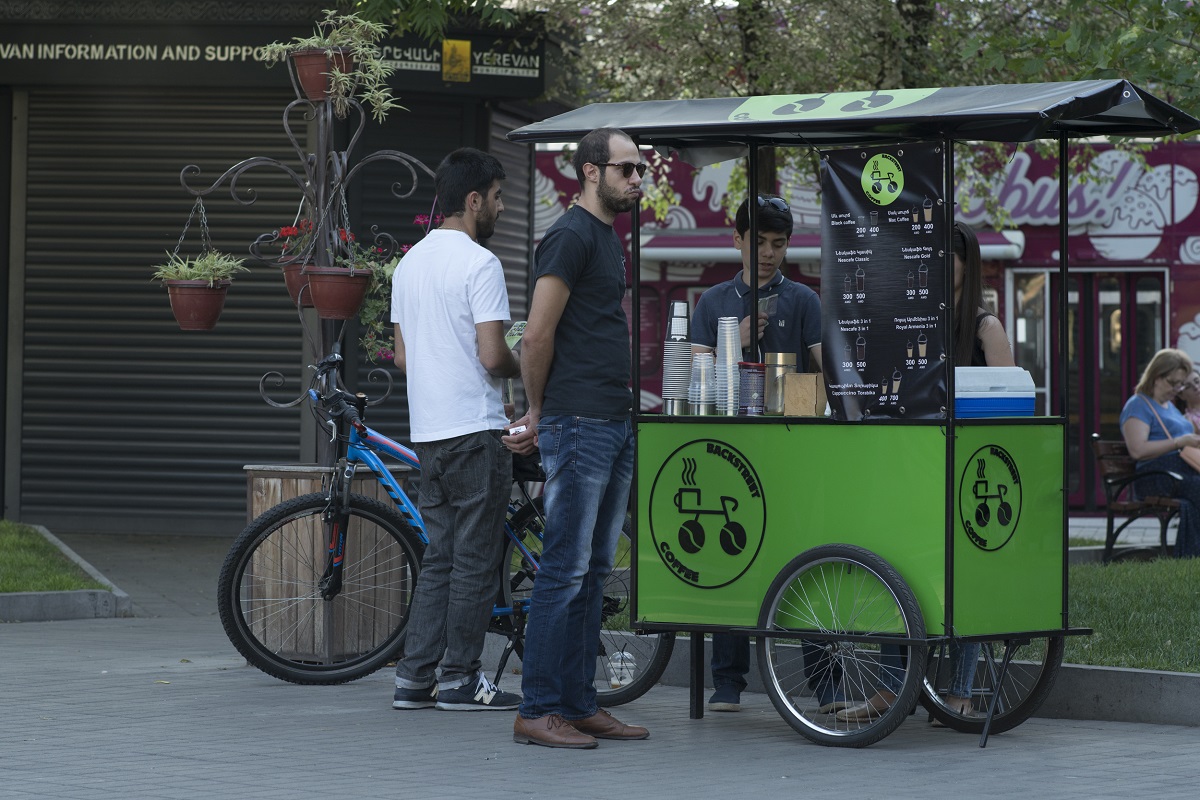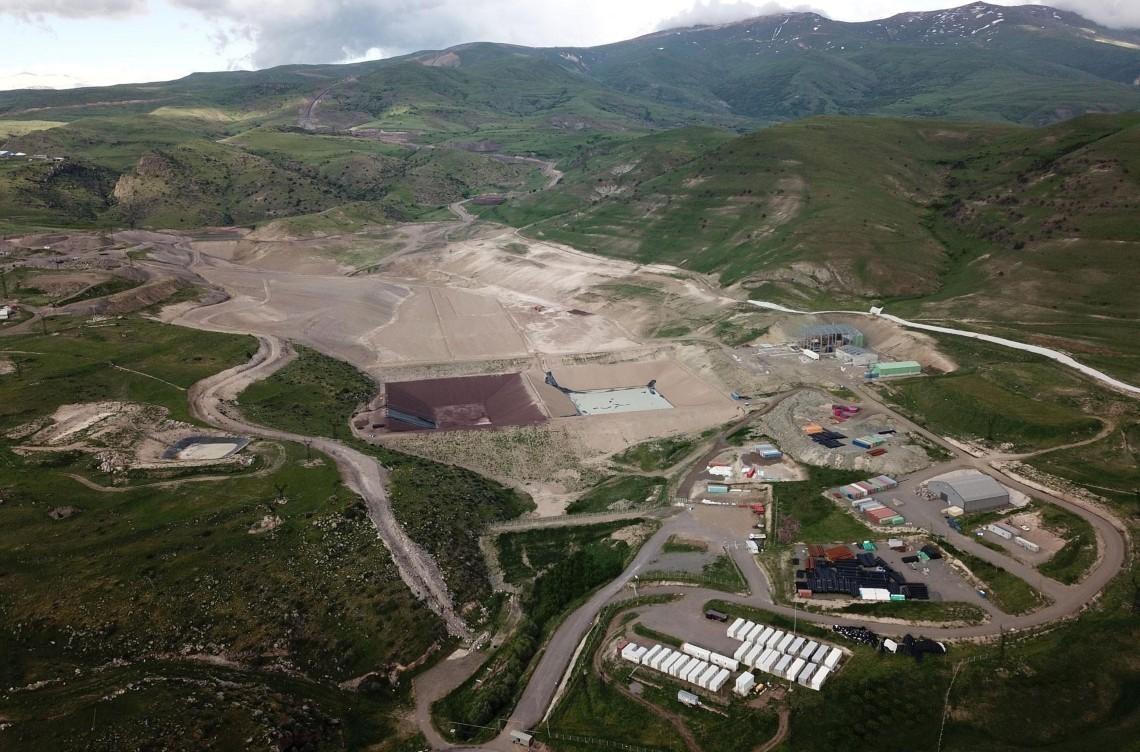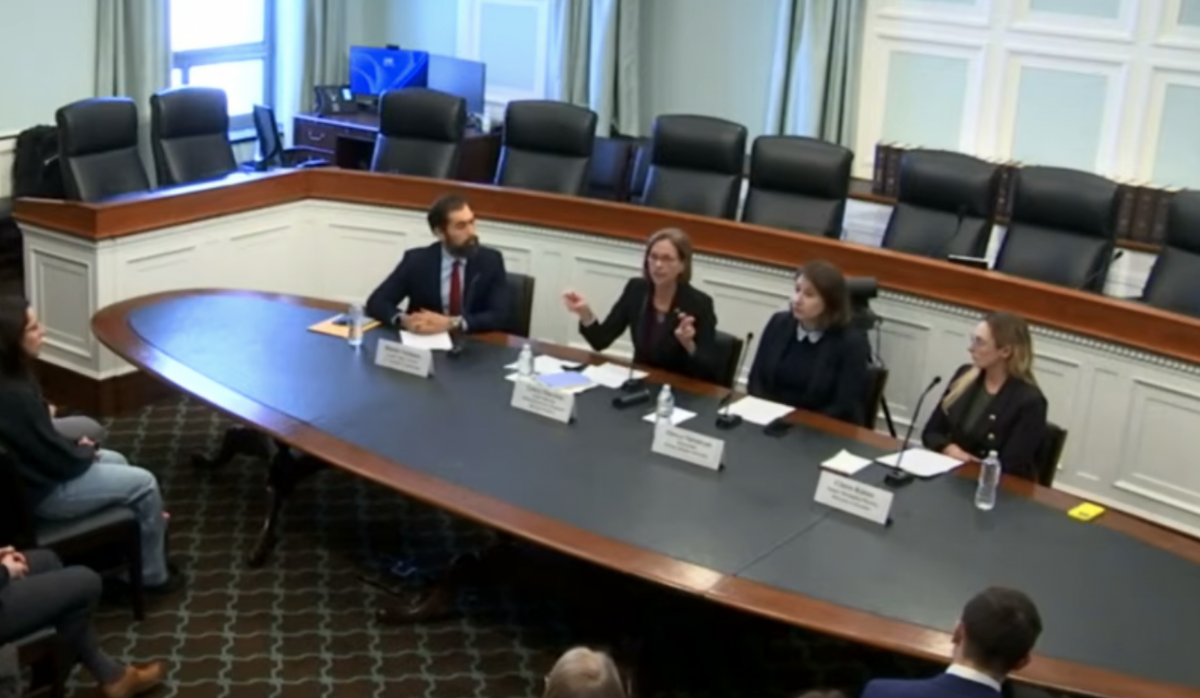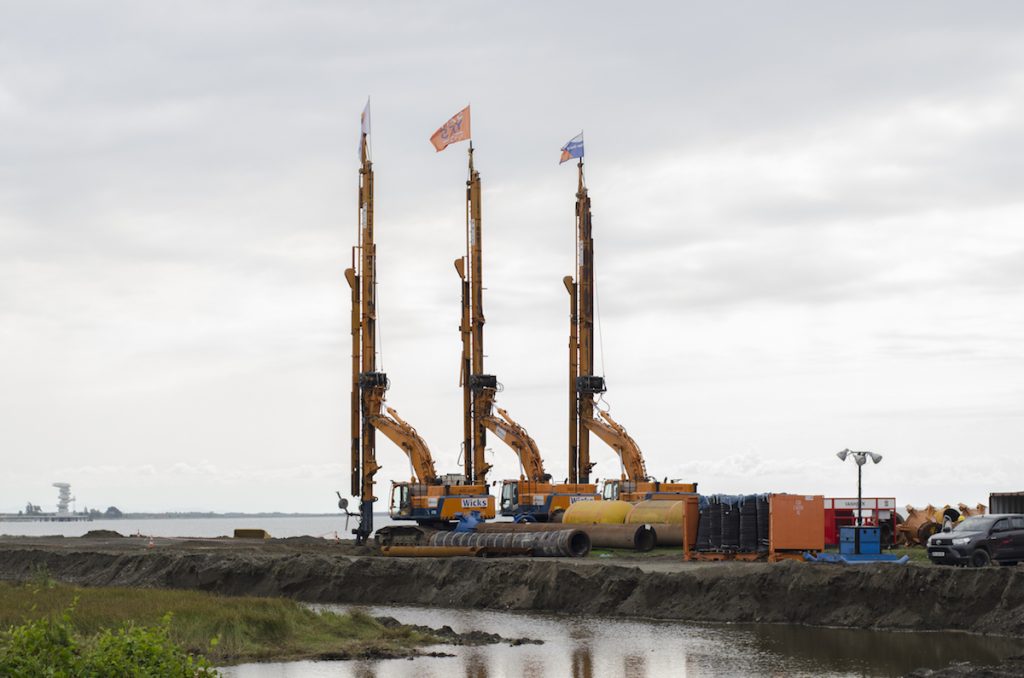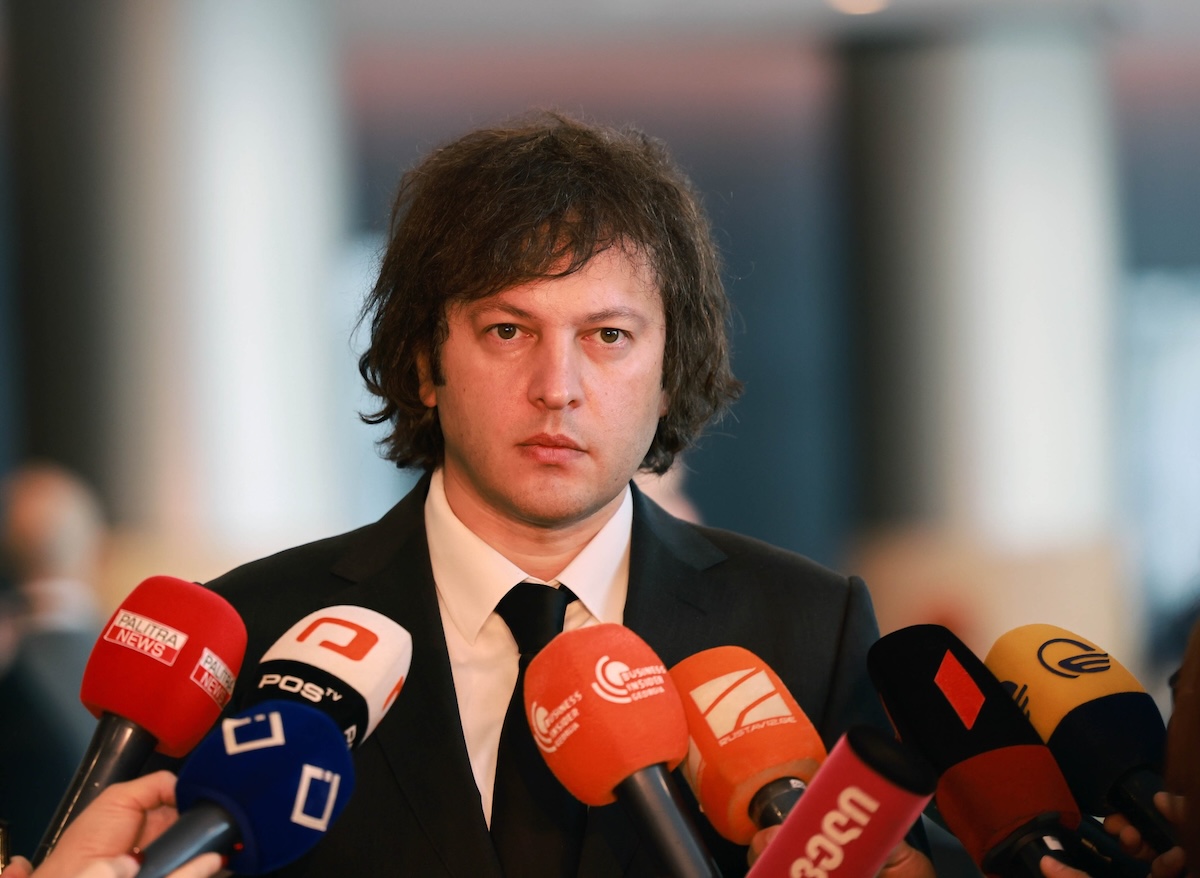Strike at copper-molybdenum plant halts Armenia’s largest taxpayer
Strike at Zangezur copper-molybdenum plant
Employees of the Zangezur copper-molybdenum plant in Armenia have been on strike for the sixth day, demanding a 50% wage increase and improved working conditions. A closed, secret vote was held, and 2,448 out of 4,600 workers supported the strike’s demands.
The production process has been halted. According to the plant’s press service head, Araik Margaryan, this “could lead to economic and even environmental consequences, as well as safety issues.”
The Zangezur Copper-Molybdenum Plant is Armenia’s largest taxpayer. In 2024, the company contributed over $258 million in taxes and customs duties to the state budget, placing it at the top of the list of largest taxpayers.
Since late 2021, the Armenian government has been involved in the plant’s management, holding 21.8% of its shares. However, no response has yet come from the government or the State Property Management Committee, which oversees the state’s shareholding in the plant.
The majority of shares in the Zangezur copper-molybdenum plant are owned by companies and individuals affiliated with Russian billionaire Roman Trotsenko.
- Economy Minister: ‘Armenia won’t swap EAEU for another bloc, it seeks independence’
- ‘Increase in employment and competitive workforce’: strategic program in Armenia
- Proposal to shorten Armenia’s workday by an hour is flawed: economist’s opinion
“Offering pitiful raise”
The plant’s management met with the striking workers yesterday, but no agreement was reached on wage increases.
“In short, neither side has changed its position—neither the employer nor the strikers. Still, I see a positive trend. The dialogue took place in a fairly constructive atmosphere,” said Vage Mkhitaryan, a member of the strike coordination council.
He stated that the workers are demanding a “decent wage increase,” even if not the full 50%. However, both before the strike and now, they have only been offered raises of 2–32%, depending on the position:
“This doesn’t solve the problem. When we convert this percentage into actual money, we see that these amounts don’t address the issue. They are offering a pitiful raise. And considering that wages were last reviewed seven years ago, our demand seems entirely reasonable.”
The workers are now awaiting another meeting with management. If the initial offer is not revised, the strikers plan to take a tougher stance.
“We may take the next step we’ve planned—intensifying public pressure. When a decision is made, we will announce it,” Mkhitaryan said, without specifying what actions they intend to take.
“Process hasn’t hit dead end”
The plant’s press service head, Araik Margaryan, declined to give a clear answer on what steps the company is taking to resolve the situation, suggesting that journalists direct their questions to the unions:
“The important thing is that the process is moving forward. As far as I know, it has not hit a dead end.”
At the same time, he confirmed that for several days now, “the main production workshops have been idle.”
Mkhitaryan also reported that the mine, the mechanical workshop, the crushing and ore transportation facility, and the beneficiation plant—where the final product is processed—are all currently shut down.
Management calls workers’ actions illegal
On February 1, the plant’s management and the trade union issued a joint statement declaring that they do not recognize the workers’ actions as a strike and do not support them, calling them unlawful:
“A group of employees is making unrealistic wage demands in an ultimatum-like manner and sabotaging the work process. As a result of their illegal actions, the plant’s production cycle has been disrupted, causing significant financial damage to the company and other workers.”
The copper-molybdenum plant’s management warned that if these “illegal actions” continue, a large number of employees could face prolonged forced downtime.
Shortly after, another statement was published detailing the wages paid by the plant:
Beneficiation plant:
- flotation operator – 399,470-594,099 AMD ($1,011-$1,504),
- plumber – 329,918-580,003 AMD ($835-$1,468),
- welder – 359,856-609,491 AMD ($911-$1,543).
Crushing and mineral transportation workshop:
- conveyor operator – 450,090-480,060 AMD ($1,139-$1,215),
- welder – 362,789-614,809 AMD ($918-$1,556).
Heavy truck drivers paid on piecework basis (km/trip):
- 90 tons – 1,140,151 AMD ($2,886),
- 130 tons – 1 372 247 ($3474),
- 180 tons – 1 672 215 ($4233).
“We believe it is important to note that the average salary at ZCMC currently exceeds all industry benchmarks,” the statement said.
The company also stated that it began reviewing salaries in September 2024 to “implement institutional wage principles, eliminate social inequality, and establish a transparent payment system based on industry standards and objective criteria.” Management claims that as a result of these changes, the wages of truck drivers and their assistants have significantly increased.
Responding to complaints about working conditions, the plant’s management emphasized that employees are provided with free transportation and one meal per shift. Additionally, they have access to subsidized and free union-sponsored vacations in Armenian resorts. According to the statement, the company reimburses educational expenses for employees and their children. Workers and their families receive medical insurance, and the company’s charitable foundation provides financial aid for those in need of medical treatment.
“Mining sector continues to offers highest wages”
This statement was issued by organizations within Armenia’s Union of Miners and Metallurgists, asserting that salaries in the mining sector are comparable only to those in the IT industry and banking sector:
“Moreover, mining companies often maintain an inflated workforce, disregarding their own economic interests to preserve jobs in remote regions and prevent emigration.”
Union members stressed that ensuring the stable operation of Armenia’s largest taxpayer is crucial for the country’s economic stability and reputation.
“While we do not dispute anyone’s right to fight for better working conditions, we urge protesters to voice their demands legally, without disrupting the plant’s operations,” the statement read.
The Union of Miners and Metallurgists also argued that “strikes not only fail to solve problems but also create significant economic and social challenges for society and the region.”
$83 billion in dividends from plant shares paid to state budget in 2024
Last week, Armenian Prime Minister Nikol Pashinyan spoke about the Zangezur Copper-Molybdenum Plant, emphasizing that since 2021, the government of Armenia—”that is, the people”—has been among its shareholders. He noted that this stake is valued at tens of billions of drams:
“ZCMC is not only the largest taxpayer in the Republic of Armenia, but for the first time, the state budget, as a shareholder, received a profit of 33 billion drams [$83 million] in 2024.”
Pashinyan had also addressed the topic late last year:
“The plant generating profit for the state is an event worth highlighting, as nothing like this has happened in Armenia for more than 20 years. In 2022, the year after the government acquired its stake, the plant paid 7 billion drams [$17.7 million] more in taxes than it did during the entire period from 2012 to 2017 combined.”











